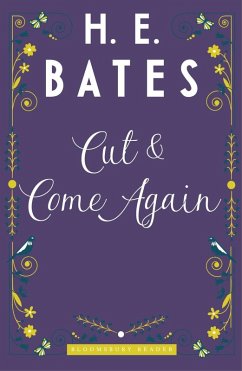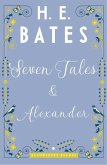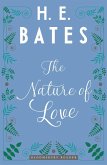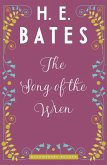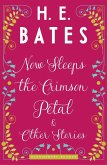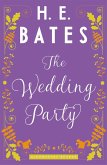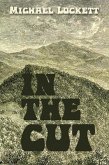H.E. Bates's fifth collection is a sparkling body of work full of stories of childhood. Geoffrey West observed the collection overall as "bright with life, with individuals alive and interacting, and with the sweeping beauties of broad country backgrounds."
Often cited as one of Bates's best stories, 'The Mill' relates the misfortune of a young girl in service. Bates was inspired by the daughter of a travelling greengrocer who called on his family: "It seemed to me a face moulded out of yellow clay: a face born to tragedy. I believe it is true that Hardy saw his Tess only once and ... from that fleeting experience, haunted also by a face, created his celebrated novel."
We get a glimpse into Bates's negative experiences of education in both 'Little Fish', where a boy observes his father, normally a man "terrifying everyone in spasms of half-theatrical anger" become, in the presence of a school administrator, furtive and apprehensive; and in 'Jonah and Bruno', a classroom tale involving an arrogant and dictatorial teacher, a rebellious smart-mouthed student, and the eventual humiliation of the teacher by an intervening soldier.
Comic relief comes in the form of witty characterisation and dialogue in 'The Irishman', and in 'The Revelation', a charming tale where the young narrator observes the housekeeper giving an elderly Uncle Silas his weekly bath; between roasting "taters" and drinking wine, Silas relates his childhood follies, including the time he chased a young woman "across the meadow with my clothes under her arms," which leads to a tender twist in the tale.
Often cited as one of Bates's best stories, 'The Mill' relates the misfortune of a young girl in service. Bates was inspired by the daughter of a travelling greengrocer who called on his family: "It seemed to me a face moulded out of yellow clay: a face born to tragedy. I believe it is true that Hardy saw his Tess only once and ... from that fleeting experience, haunted also by a face, created his celebrated novel."
We get a glimpse into Bates's negative experiences of education in both 'Little Fish', where a boy observes his father, normally a man "terrifying everyone in spasms of half-theatrical anger" become, in the presence of a school administrator, furtive and apprehensive; and in 'Jonah and Bruno', a classroom tale involving an arrogant and dictatorial teacher, a rebellious smart-mouthed student, and the eventual humiliation of the teacher by an intervening soldier.
Comic relief comes in the form of witty characterisation and dialogue in 'The Irishman', and in 'The Revelation', a charming tale where the young narrator observes the housekeeper giving an elderly Uncle Silas his weekly bath; between roasting "taters" and drinking wine, Silas relates his childhood follies, including the time he chased a young woman "across the meadow with my clothes under her arms," which leads to a tender twist in the tale.

